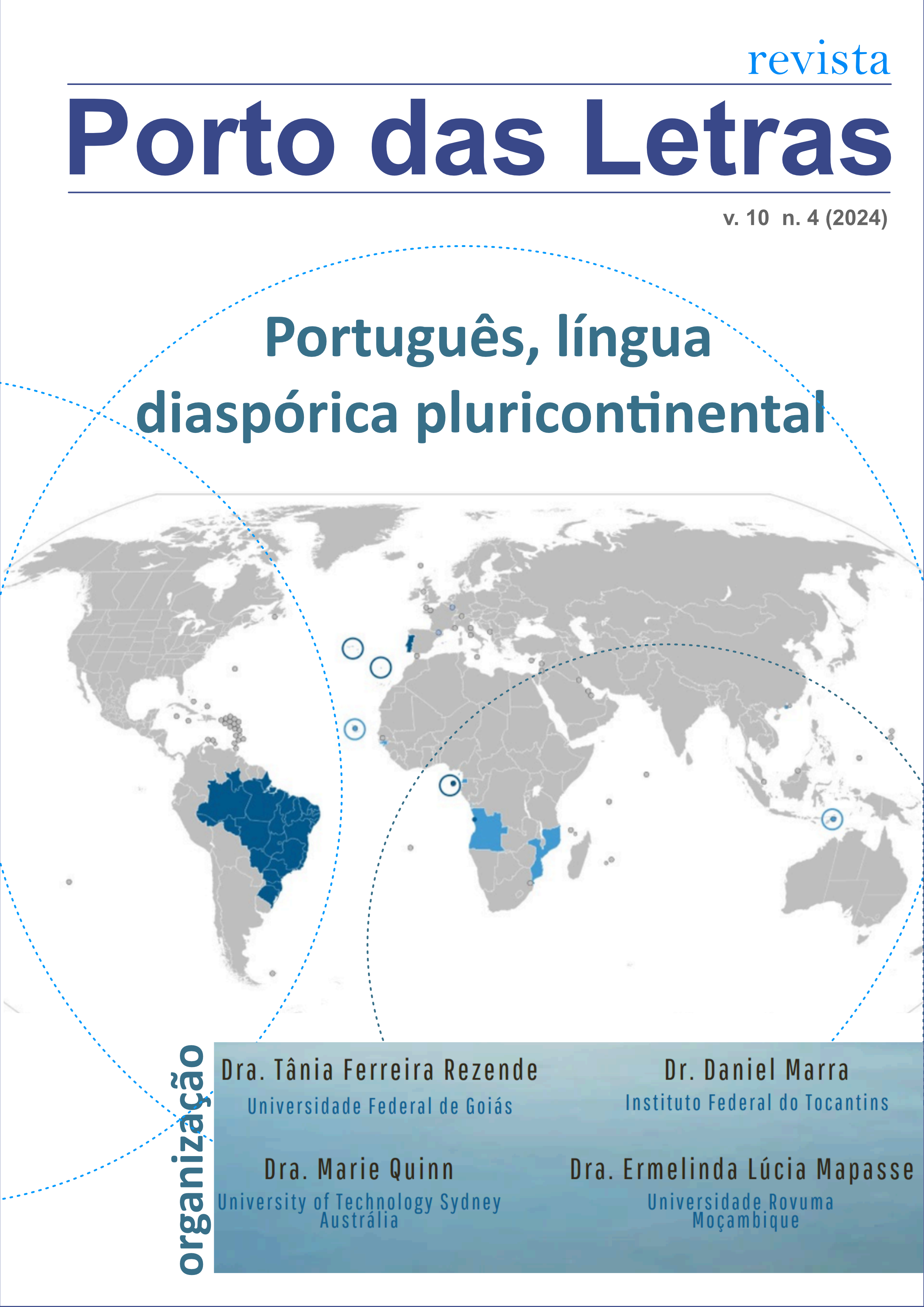NECROENUNCIATION: COMMANDING THE DEATH OF THE OTHER
DOI :
https://doi.org/10.20873.24.301Résumé
Violence and hatred towards others are ancient, but they are not natural or intrinsic to human beings. They are constructed and historically fueled, just like the sociodiscursive practices that materialize them. Despite this, violence is at the base of human relations (disputes), sustaining the power tensions that act within the webs of social relations, and hatred has been a strategy of domination, oppression, and resistance to domination and oppression. Thus, the figure of the antagonist or enemy, the target of hatred and violent practices forged in power struggles, is still fundamental in the Manichaean structure of human consciousness and subjectivities. In this process, a language and a way of signifying the world emerge, formalized by violence: necrolanguage, in necroenunciations. Based on the video of the Ministerial Meeting of April 22, 2020, in this article, we discuss the effects produced by the necroenunciations of the then Brazilian government, focused on national development, and their impacts on historically subalternized groups. Additionally, we reflect on the teacher training of these groups, based on a linguistic education that recognizes the colonial ambivalence of Portuguese, that is, its agency both as an instrument of domination and as a defense against its effects of domination. We can suggest that in the social tension, as a reaction, the necroenunciations and necroenunciates of the dominant discourses are also part of the victims' defense arguments, as they support the denunciations of social violence.
Références
ANZALDÚA, Gloria. Borderlandslafrontera – the new mestiza. San Francisco: Aunt Lute Books, 2012.
BOAL, Augusto. A Tempestade. [S.I.: s.n.], 1979.
DIRETÓRIO DOS ÍNDIOS. Texto integral. Nação Mestiça. Disponível em: <https://www.nacaomestica.org/diretorio_dos_indios.htm>. Acesso em: 29 out 2020.
ESPOSITO, Roberto. El dispositivo de la persona. Manantial. Buenos Aires, 2000.
EVARISTO, Conceição. Nossa fala estilhaça a máscara do silêncio. Entrevista à Carta Capital. 2017. Disponível em: https://www.cartacapital.com.br/sociedade/conceicao-evaristo-201cnossa-fala-estilhaca-a-mascara-do-silencio201d/. Acesso 13nov. 2020.
FREIRE, Paulo. Educação como Prática de Liberdade. Rio de Janeiro: Paz e Terra, 1967.
GINZBURG, Carlo. Mitos emblemas sinais:Morfologia e História. São Paulo: Companhia das Letras, 2016.
LIMA, Hildomar José de; Rezende, Tânia Ferreira. O(A) surdo(a) em terras euro-ouvintistas: corpos e línguas na trama colonial. In: FARIA, Juliana Guimarães; Rezende, Tânia Ferreira (Org.). Expressões Sinalizadas. vol. 2, Goiânia: Cegraf, 2020 (no prelo).
MBEMBE, Achille. Políticas da inimizade. Tradução Marta Lança. Lisboa-PT: Antígona, 2017.
MBEMBE, Achille. Necropolítica. Tradução de Renata Santini. São Paulo: N1 Edições, 2018.
MIGNOLO, Walter. EpistemicDisobedience, IndependentThoughtandDe-ColonialFreedom. Theory, Culture&Society. Vol. 26 (7-8) (DOI: 10.1177/0263276409349275). Los Angeles, London, New Delhi, and Singapore: SAGE, 2009.
REZENDE, Tânia Ferreira; RODRIGUES, Eunice Moraes da Rocha. Perspectiva intercultural em práticas de formação de docentes indígenas. Dossiê Línguas Minoritárias. Linguagem e Ensino, v. 23, n. 4, 2020, p. 1204-1223.
REZENDE, Tânia Ferreira. GOMES, Letícia Santos. Uma canção pela vida: a decolonialidade está no seio da mãe terra. In: Mendonça e Silva, Cleidimar Aparecida. América latina e língua espanhola: perspectivas decoloniais. São Paulo: Pontes.
RICH, Adrienne. The BurningofPaperInsteadofChildren. Disponível em: https://www.sccs.swarthmore.edu/users/99/jrieffel/poetry/rich/children.html Acesso em: 13 nov. 2020.
STIGERT, Scarllet. Contribuições da criminologia crítica à “Hipótese PCC”. Trabalho de Conclusão do Curso de Graduação em Direito do Centro de Ciências jurídicas da Universidade Federal de Santa Catarina, 100fl, 2020.
VILLAPUDUA, Karla Castillo. Más biodiscursos menos necrodiscursos: a la conquista deltercereje. Dossiê Reflexiones Marginales. Revista Latindex, n. 58, jul. 2020.
VOLOCHINÓV, Valentin (Círculo de Bakhtin). Marxismo e filosofia da linguagem – problemas fundamentais do método sociológico na ciência da linguagem. Tradução: Sheila Grillo e Ekaterina Vólkova Américo. São Paulo: Editora 34, 2017.
Téléchargements
Publié-e
Comment citer
Numéro
Rubrique
Licence
Os autores concordam com os termos da Declaração de Direito Autoral, que se aplicará a esta submissão caso seja publicada nesta revista (comentários ao editor podem ser incluídos a seguir).

